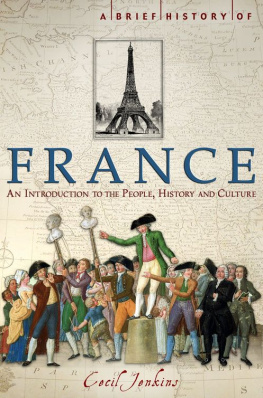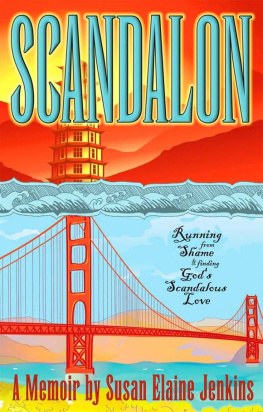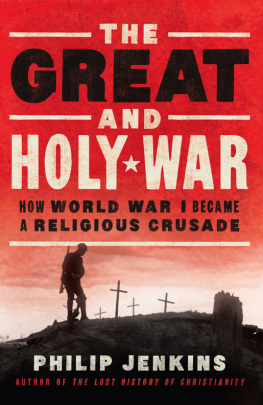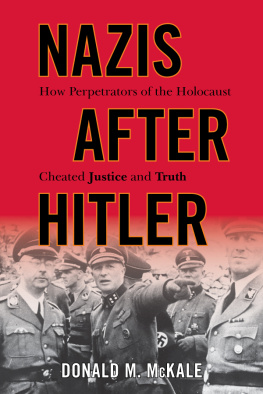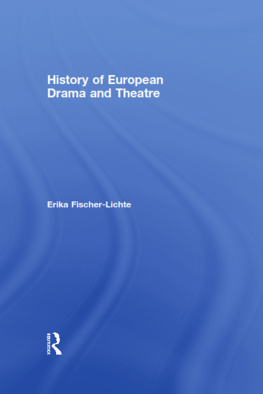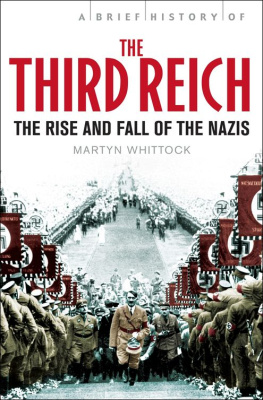Thank you for downloading this book, World War II: A Brief History of the European Theatre.
World War Two claimed the lives of perhaps sixty million people worldwide. The war in Europe began in 1939 with the German attack upon Poland and the subsequent declaration of war on Germany by Poland's allies, Great Britain, and France. However, the war, in the opinion of many historians, actually began in Asia in either 1931 or 1937, with Japanese attacks on Manchuria and China, respectively.
By the mid-1930s, worldwide economic distress and civil wars, uprisings, political and territorial disputes in Europe had led to an international situation that by 1938 had made war seem inevitable. Most of them had begun or been exacerbated by the rise of Fascism and Nazism in Italy and Germany, respectively.
This e-book will provide you with a basic introduction to WWII in Europe, and hopefully will encourage your further study of this monumental event in world history.
Please feel free to share this book with your friends and family. Please also take the time to write a short review on Amazon to share your thoughts.
Chapter 1: The Buildup to War
When World One ended in November of 1918, many people believed American President Woodrow Wilson's proclamation that the war had been fought as the War to end all wars. They hoped that the Fourteen Points that Wilson had brought with him to Paris for inclusion in the peace treaty would lead to world peace, for the foreseeable future, if not forever. This was not to be.
WWI had cost Europe close to ten million dead, millions more displaced, hundreds of thousands missing, and billions of dollars in damages. Most countries were left both destitute and angry, whether they had been amongst the defeated or the victors. Empires, like those of Austria-Hungary and the Ottomans, ceased to exist and were eventually broken into smaller countries, a process which led to much violence and turmoil.
Many in France and England blamed Germany for starting the war, and while there is an element of truth to this assertion, the fact is that most of the powers of Europe bear some responsibility for starting the war. However, there is more to it than that. Of all of the belligerents that had fought on the losing side, the Central Powers, Germany was the only one left in existence when the war ended. Germany also had had the largest and most powerful army among the Central Powers of Austria-Hungary and the Ottoman Empire/Turkey and had caused the most damage and casualties to the Allied Powers of Great Britain, France, Russia, Italy, and the United States, to name just the major powers in the alliance. Therefore, when the war came to a close, it was Germany that paid the brunt of the reparations and the consequences of being on the losing side.
To much of the German public, the defeat of their country had come as a surprise. Germany, before and during the war, had been under the control of an autocratic monarchy that strictly controlled the press. During the war, for reasons of domestic security, the government strictly controlled the flow of information regarding German setbacks in the war from the public. When the government sued for peace in November of 1918 on the recommendation of the General Staff of the Army, it came as a shock to the German people and for some in the armed forces. One of these people was a corporal on the Western Front named Adolf Hitler. They had been told all along that victory was within reach, especially after the offensives of the summer, which, the German people had been told, would be great and decisive victories.
The armistice proclaimed on November 11 th , 1918 was thought by the Germans to be a preliminary step in negotiations that would take place for the powers to come to an equitable settlement of the war, with the grievances of all sides considered. This was not what the Allies had in mind.
Disregarding the wishes of President Wilson, and basically dismissing his Fourteen Points as naive and unworkable, the leaders of France and Great Britain forced massive concessions from Germany as payment for the losses that they incurred during the war. In a weakened state both economically and militarily, Germany had no choice but to sign what became known as the Versailles Treaty, ending WWI.
Though many historians and others have since made much of the harsh terms of the Versailles Treaty on Germany and their part in the rise of Hitler, it should be remembered that when Russia, an ally of Britain and France, dropped out of the war due to the Bolshevik Revolution in 1917, the Germans forced them to sign a treaty that was much more punishing and strict than the Versailles Treaty. Additionally, treaties that were to be signed with the Western Powers should Germany had been victorious in WWI were equally harsh.
That being said, the Versailles Treaty did single out Germany as the country most to blame for the war, imposed tremendous reparations payments on the country which they could not afford the nation was totally bankrupted by the war, limited the size of the German armed forces which was a tremendous blow in and of itself the armed forces held a place of great prestige and honor in German life, and limiting the amount of men able to join dashed the hopes of millions of young German men, and forced Germany to give up its overseas territories and territory won from France, Germany's long-time foe, which was another blow to German prestige and pride. The result of the Versailles Treaty was a weakened Germany, but one that seethed with rage and resentment.
Difficult economic times brought on by the Versailles Treaty, a hyperinflation in the early 1920s, the rise of communist influence in Germany, brutal political street violence between the forces of the Right and Left, and radical changes in German culture in the 1920s brought a desire on the part of many in Germany for someone to bring order to chaos, and a return to the familiar.
Underlying this was a racism and anti-Semitism that grew with every blow to Germany, both economically and politically. There had been anti-Semitism in Germany almost since the advent of Christianity. It had gotten worse during the Reformation, and had stayed at a slow boil until the late 1800s. At that time, pseudo-scientific ideas about race were very popular, not only in Germany, but throughout the Western world. Many saw the dominance of the world by Europeans as evidence of white superiority. At this time, anti-Semitic feeling began to grow in Germany and Europe. In the years immediately following Germany's defeat in WWI, many began to blame the Jews in Germany for the loss they claimed that Jews and Communists which were often the same in racist eyes had stabbed Germany in the back. After all, when the war ended, German forces occupied other countries, not the other way around. How else could Germany have lost the war, if not betrayed from within?



